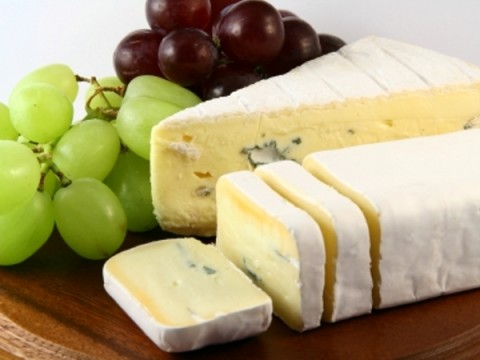Glorious cheese. It can be sweet or savory, hard or creamy, imported or domestic, but is it pasteurized?
Pasteurization is the key to safely eating cheese while pregnant. Most domestic cheeses are pasteurized, but with more than 670 different types of cheese out there, not including the array of craft or artisan cheeses being produced, deciphering what is safe can be a bit of a cheese maze.

When in doubt, stick to hard cheeses like cheddar, mozzarella, Parmesan and Swiss, to name a few, and stay away from the cheeses listed below.
Brie
This soft cheese was first produced in Brie, France. It has a pale, creamy color and is covered by a white rind of mold. It is soft and savory. The molded rind is also eaten, though its flavor can vary from one manufacturer to another. Brie can be found in a variety of cream levels. Triple cream brie is the creamiest, fattiest and most delicious of them. Brie, however, is made from unpasteurized milk. That and the presence of mold indicate certain levels of bacteria, which can be harmful to pregnant women. Brie should be avoided while pregnant.
Cheese maker Alouette makes a version of brie from pasteurized milk. While not quite the same, if the urge for brie strikes, it might be an acceptable alternative.
Camembert